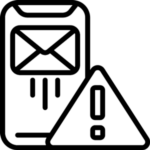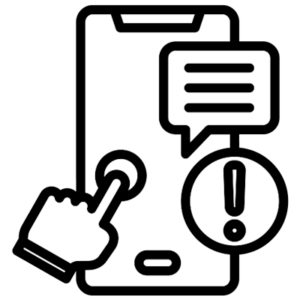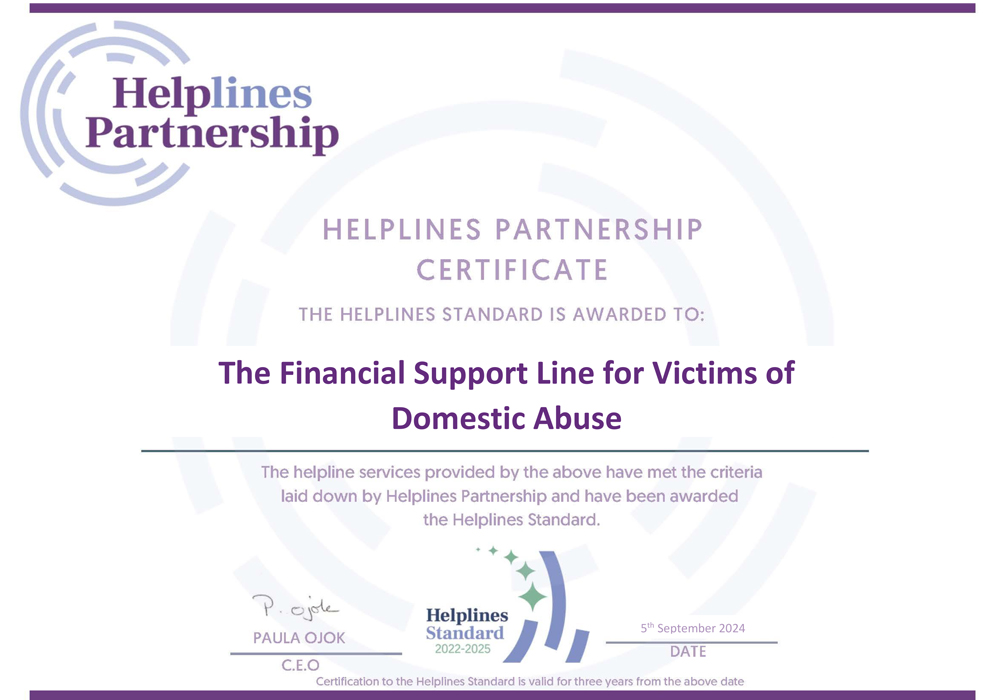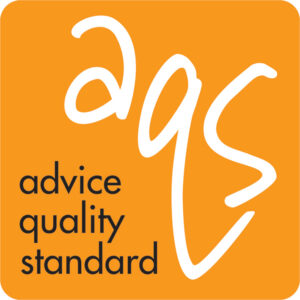Everything you need to know about banking
Bank accounts allow you to keep your cash safe and manage your money easily in one place.
They allow you to make payments automatically so you do not forget to pay bills. They provide you with statements, which show money that has gone in and out of your account. Use these to check your spending.
Current Accounts
A current account is an account which you can use in branch, online or over the telephone. A current account is typically free to open and use.
If you spend more money than is in your account, you may become overdrawn. This can lead to expensive charges.
Being overdrawn means you have spent more money than you have in your account. You will have to pay this money back, and if you have not agreed this with your bank, they may charge you a lot of money for this.
Savings Accounts
A savings account is a safe way to store your money. It pays interest on the amount you save.
Interest is extra money. On a savings account, this is extra money you earn for keeping your money in the account.
There are also other types of bank account. You can find out about these online or by going into your local bank.
When you are opening an account, explain to the member of staff at your bank what you will be using it for and they will advise you which account is best for you.
Machines
- A cash machine (or ATM) is a machine that you can take money out of.
- A deposit machine is a machine where you can put money into your account.
- If you need help using a machine, you can ask a member of the bank’s staff to help you. You can usually identify bank staff by their uniforms and name badges.
Counter Service
You can choose to use counter services instead of the machines. This may not be available at all banks.
The member of staff behind the counter can help you with most of your banking requests.
Desks/Offices
You may see lots of desks or small offices. This is where members of staff can help you with more complicated products or services.
It is always best to go to the counter first, and a member of staff will take you to one of these desks if they need to.
Do not be afraid to ask a member of staff if you are unsure. They are there to help.
In the bank step by step:
- You will need your bank card and your PIN. You may also need photo identification (ID), such as a driving licence or passport. If you use a communication book or alert card, it may also be helpful to bring one.
- Go to the counter. If there is a queue, you will need to join it. If there are a lot of people and you become anxious, explain that to the nearest member of staff and they will help you.
- When you get to the counter, have your bank card ready. You can also show your communication book or alert card, if you have one.
- Explain to the member of staff behind the counter what you would like to do.
- They may ask to put your card in a machine and enter your PIN.
- You should not be asked to say your PIN out loud or to give it to someone else. If you are unsure whether to give someone your PIN, talk to someone you trust.
- If you cannot see the numbers on the card machine or you cannot remember your PIN, explain this to the member of staff and ask if they can check your ID in a different way.
- If you are asked for ID, this has to have your photo on it (such as a driving licence or passport).
- If you fail the ID checks, the bank might not serve you. If this happens, try not to panic. You can return to the bank with your ID at another time.
Standing Order
A standing order is a regular payment from your account that you set up and control.
You can set these up and control them in the bank by asking a member of staff, or through online or telephone banking.
For example, you can set up a standing order to your landlord to pay your rent, or make a regular payment to your savings account.
Direct Debit
A direct debit is a regular payment where you agree that a company can take money out of your bank account. You can cancel this by speaking to both the company and your bank.
The company can request different amounts each time the payment is taken.
For example, you can set up a direct debit for your phone bill, and each month the phone company will take the full amount of the bill that is owed.
A debit card is a card that is used to buy items or to withdraw cash from your bank account through a cash machine.
A credit card is a card that lends you money to buy items, which you have to pay back.
Credit is an agreement that allows you to buy an item and pay for it at a later date.
Each of your different cards will have a different PIN.
Debit and credit cards can be used in many different places, including:
- High street shops
- Online
- Over the telephone
You may be charged for withdrawing money from a cash machine when you use your credit card.
Where can I get a debit or a credit card?
A debit card is linked to your bank account so you can get one from your bank.
You can also get a credit card from your bank. You can get a credit card from many other companies too.
Differences between debit and credit cards
With a debit card, money leaves your account as soon as you buy something.
With a credit card, money does not leave your account until you pay the bill that is sent to you by your credit card company.
A debit card is limited to the amount of money available in your account.
A credit card has a limit so you can only spend up to that amount.
Using a card abroad
You can use your bank cards abroad, both in shops and to take out cash.
If you use a card abroad, it is likely there will be additional charges. Ask your bank or credit card provider about charges before you travel.
Things to remember about a credit card
Purchases on credit cards are funded by money that is being lent to you. You have to keep track of what money you spend, and pay the bill when it comes.
If you do not pay your full credit card bill on time, you will usually have to pay interest.
You must pay at least the minimum payment on your credit card bill or there will be high charges.
If you miss a payment or cannot pay your bill, this can affect whether or not you can borrow money from the bank in future. If you are struggling to pay your credit card bill, speak to your bank or credit card provider.
- Do not tell anyone your PIN. Keep your PIN secret. You should not be asked to directly tell a person your 4-digit PIN – you should only have to enter it into a machine.
- Make sure you keep your personal and bank details to yourself. Do not share them with people you do not trust.
- Check your bank statements to make sure that all of the money that has gone out of your bank account is for amounts you recognise and remember spending. If you do not recognise an amount, talk to a member of staff at your bank or someone you trust.
- Make sure you keep your credit and debit cards safe and secure.
- If you lose a card, speak to a member of staff at your bank or card provider. They will cancel the lost card and send you a new one.
Tips for avoiding scams
- Only give out your personal details to websites and emails that you trust. Look for the lock symbol by the website address bar at the top. This indicates a website should be secure.
- If you are unsure whether a website is secure, ask someone you trust to have a look at the website.
- Take your time. There is no need to rush anything. Think before you give anyone your personal information.
ATM: this stands for Automated Teller Machine – see Cash Machine.
Bank: this is a company that lets you store your money with them. They offer financial services, and can give you help and advice on questions about money.
In this guide this word is also used to describe building societies, which are companies that offer similar services to banks.
Bank account or building society account: an account is an arrangement made with a bank or building society, which allows you to store money, take money out and put money in.
Cash machine: this is a machine that lets you take cash out of your account, and check your balance.
Credit: an agreement that allows you to buy an item and pay for it at a later date.
Credit card: a card that gives you credit to buy items. You cannot see money leaving your card account each time you use your card. Instead, you normally pay a bill each month.
Credit score (sometimes referred to as credit rating): a ‘score’ is given to individuals based on how likely you are to repay the money you borrow, and will affect whether or not you can borrow money in future.
Current account: your everyday account. The account that you put your money into, and get given a debit card to use for every day purchases.
Debit card: a card that is used to buy items, or to withdraw cash from your bank account.
Direct debit: a regular payment from your account to a company you have agreed to pay. The company you are paying controls the payment.
Insurance: this is something you pay to protect yourself against events which could cause you some loss, for example, loss or damage of your belongings.
Interest: this is additional money, either given to you or owed by you. On your savings, it is additional money given to you as a reward for putting your money in their bank. On a loan or credit card, it is additional money that will be taken from you as a charge for borrowing money.
Loan: this is when someone gives you money that you have to repay over a period of time.
Overdraft / Overdrawn: being overdrawn is when you spend more money than you have in your account. Most accounts charge money for this, unless you have an agreed overdraft.
PIN (Personal Identification Number): each debit or credit card you own will have a different 4-digit number, and you will be asked to enter this number whenever you want to use your card. Do not tell anyone your PIN.
Savings account: this will be an account that you may access less often. This is where you put money to save; money you don’t need to use every day. You will get paid interest on this account.
Scam: this is where someone tries to take your money by pretending to help you or by offering you something.
Standing order: this is a regular payment from your account that you set up and you have control of.
Statement: a list of all payments going into and out of your account in a set time period (for example, you may receive a statement each month).
What is insurance?
Insurance is something you pay for that protects you against events which could cause you some loss. For example if you lose or damage your belongings, you can receive money to replace them.
Insurance can be paid for in a one-off payment, or in regular payments.
If you need to make a claim, your insurance company may pay for the full amount, or a part of the full amount, depending on your level of cover. It is important to check the terms and conditions of your cover.
Is it worth having insurance?
If you could not afford to replace an essential item if it breaks then it may be worth getting it insured. However, if you have been able to save money “for a rainy day” and you could afford to replace the item, then it may be better to keep putting a small amount into saving for these kind of emergencies instead of paying for insurance.
How can insurance help?
- Insurance provides protection for you (against a specific risk) and can ease anxiety.
- Insurance may stop you from having to make a big payment if something goes wrong.
Common types of insurance:
- Home & Contents – covers damage to your home and contents covers the things you keep in it.
- Travel – covers you for lots of different things while you are abroad. For example, it can pay your medical bill if you are ill, or the cost of your luggage if it is lost or damaged.
- Life – this will pay money to your family or loved ones when you die.
- Car – this is something you must have if you drive a car, in case of an accident. It will pay you or the other driver, depending on whose fault the accident was.
What is a loan?
A loan is when someone gives you money that you have to repay over a period of time. There is an interest charge added on top of a loan. Interest is additional money. On a loan this is extra money you have to pay for borrowing money.
If a loan is not repaid on time, there may be more charges added to it.
Common types of loan:
- Payday loan – is a short term loan. Payday loans are offered by high street shops and also advertised on the TV. These are often more expensive than other types of loans and charge a higher interest rate.
- Bank loan – A bank can lend someone money for a long or short period of time. A bank can lend a large amount or a small amount of money.
How loans can help:
- Loans can provide cash for a long or short period of time.
- If a loan is for a short period of time, there may be a higher interest charge.
- If a loan is for a long period, the interest charged may be lower but the total amount repaid could be higher.
- Loans mean you can borrow money to help you to make a big purchase, or if you are in a difficult financial position.
- A loan can be a big commitment. If you are considering taking a loan, speak to someone you trust.




